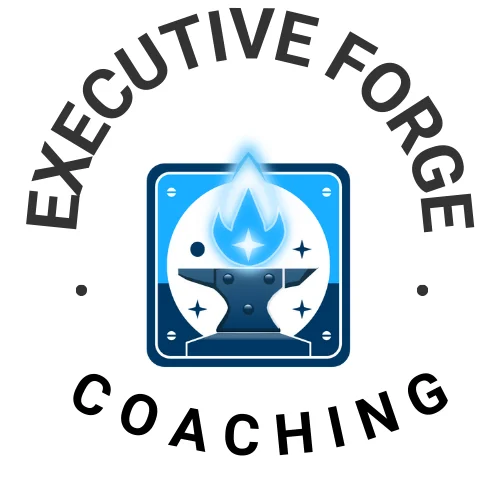If you’re reading this, you’ve already grasped a crucial truth: when it comes to advancing your career, you can’t go it alone. Congratulations! This realization puts you ahead of many of your peers.
But now comes the pivotal question: who do you turn to for help? In the realm of professional development, two key figures stand out: mentors and coaches. While often mentioned in the same breath, these roles are distinct, each offering unique benefits to your career journey. Understanding the difference—and why you need both—can be the game-changer in your professional growth.
Let’s dive into the world of mentors and coaches, exploring how these two roles can synergize to propel your career to new heights.
Mentors: The Wise Guides
Mentors are typically experienced professionals in your field who offer guidance based on their own career paths. They:
- Provide industry-specific insights and wisdom
- Share personal experiences and lessons learned
- Offer long-term career advice and perspective
- Help you navigate workplace politics and culture
Reflecting on my own journey, I realize that I never had formal mentors. Instead, I reached out to various individuals for advice when needed. Looking back, I see that I missed a significant opportunity to cultivate a stronger relationship with a mentor who could have been my supporter and champion throughout my career.
Coaches: The Holistic Development Partners
Coaches are professionals trained to help you develop in multiple areas of your career and personal life. They:
- Focus on improving your performance in specific areas
- Use structured methods to enhance your skills and overall development
- Help you clarify and set both short-term and long-term goals
- Provide objective feedback and accountability
- Assist with personal branding and communication skills
- Support you in creating and implementing action plans to achieve your vision
- Help you navigate career transitions and challenges
I didn’t engage with a coach until very late in my career because I wasn’t aware of how a coach could help me. It was only when faced with a challenging new role that I recognized the need for support to succeed. Working with a coach during this pivotal time made a significant difference in my ability to navigate that transition effectively, clarify my long-term career goals, and develop strategies to achieve them.
How Mentors and Coaches Help in Different Ways
Mentors: The Industry Insiders
- Network Expansion: Mentors can introduce you to key players in your industry.
- Career Path Insights: They share their own career journey and industry-specific advice.
- Industry Trends: Mentors keep you informed about evolving industry landscapes.
- Personal Development: They often become trusted advisors in both professional and personal matters.
Coaches: The Comprehensive Growth Facilitators
- Holistic Development: Coaches help you grow in various aspects of your professional and personal life.
- Vision and Goal Setting: They assist in clarifying your long-term vision and setting achievable goals.
- Skill Enhancement: Coaches help you identify and improve specific professional skills.
- Performance Optimization: They provide strategies to boost your effectiveness in your current and future roles.
- Action Planning: Coaches guide you in creating and implementing plans to achieve your goals.
- Behavioral Change: They help you recognize and modify behaviors that may be hindering your progress.
Why You Need Both
- Complementary Perspectives: Mentors provide industry-specific wisdom, while coaches offer a broader, more personalized approach to development.
- Balanced Growth: Mentors share industry insights, while coaches help you align your personal goals with your career aspirations.
- Comprehensive Support: Together, they address both the industry-specific and personal aspects of your career development.
- Accelerated Progress: The combination of industry guidance and personalized coaching can fast-track your career advancement.
- Navigating Challenges: Mentors and coaches support you during career transitions or challenges by providing both industry-specific advice and tailored strategies.
How to Leverage Both Roles
- Identify Your Needs: Assess where you need long-term guidance (mentor) and where you need specific skill development (coach).
- Seek Out Mentors: Look for experienced professionals in your field whom you admire.
- Invest in Coaching: Consider professional coaching for areas where you need focused improvement.
- Balance Your Time: Allocate time for both mentorship meetings and coaching sessions.
- Apply Insights: Actively implement the advice and strategies from both your mentor and coach.
In conclusion, while mentors and coaches serve different purposes, both are invaluable for comprehensive career development. Mentors offer industry-specific insights and connections, while coaches provide personalized guidance for holistic growth, helping you clarify your vision, set goals, and create actionable plans.
Sometimes, the same person can be both a coach and a mentor—this could be the best-case scenario for your development. For example, when I work with my clients, I sometimes switch between being a mentor and a coach. I have to be very careful when I do it as it is so easy to start giving advice and forget about being curious and supportive. Even when people ask for advice, they often are not looking for it, but rather need someone to listen to them and help them come up with their own answers, which is what coaches do very effectively.
By leveraging the wisdom of mentors along with the comprehensive support of coaches, you can create a powerful strategy for career advancement. Remember, in the journey of professional growth, it’s not about choosing between a mentor or a coach—it’s about embracing the unique benefits of both.


